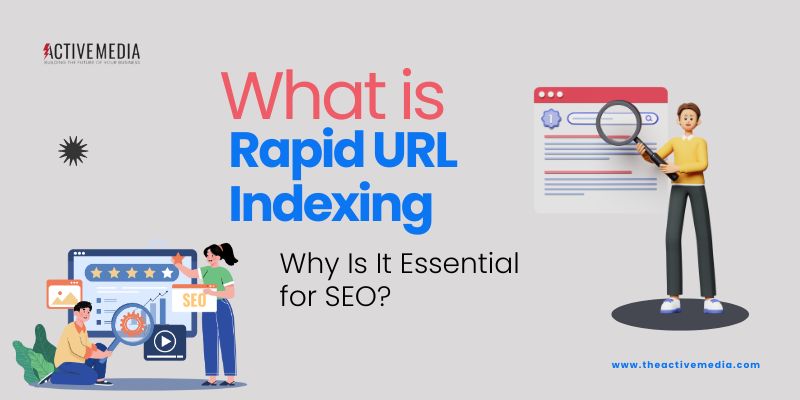Navigating the crowded marketplace can be daunting for small business owners. Yet, in the digital era, establishing a robust online presence is indispensable for drawing in potential customers and outpacing competitors.
Enter Search Engine Optimization (SEO), a critical strategy for enhancing your website and online visibility to boost search engine traffic. This approach is critical to directing more right visitors to your platform.
Excelling in local SEO can significantly alter the playing field, particularly for small enterprises with brick-and-mortar locations. This article explores vital SEO strategies that will empower you to outperform your local rivals and amplify your online business footprint.
What Is SEO and Why Your Business Needs It
Search Engine Optimization (SEO) is the process of improving the visibility and ranking of a website in search engine results pages (SERPs) through various techniques and strategies. In simple terms, SEO helps your website appear higher in the list of results when people search for keywords related to your business on search engines like Google, Yahoo!, or Bing.
At its core, SEO involves understanding what people are searching for online, the keywords and phrases they use, and the type of content they want to see. By optimizing your website to match these search queries, you can increase the quality and quantity of website traffic, driving more potential customers to your site.
For small businesses, SEO is not just a nice-to-have; it is a must-have. Here’s why:
Firstly, SEO is a cost-effective marketing strategy. Unlike paid advertising, which stops generating traffic as soon as you stop paying, SEO provides long-term results. By investing time and effort into optimizing your website, you can enjoy sustained traffic and visibility without the ongoing cost of ads.
Secondly, SEO enhances the user experience. Search engines rank websites based on their usefulness and relevance to the user.
By following SEO best practices, you can improve your search engine rankings and make your website more user-friendly, which can lead to higher engagement and conversion rates.
Thirdly, SEO gives you a competitive edge. In a crowded market, appearing at the top of search results can make a significant difference.
It builds trust and credibility with potential customers, as people are more likely to trust businesses that appear in the top results of a search engine.
Lastly, SEO is essential for local businesses. With the rise in map-based searches, local SEO helps businesses with physical locations to appear in local search results, attracting customers who are looking for products or services in their area.
This can lead to increased foot traffic and local sales.
In summary, SEO is a powerful tool that can transform your online presence, drive more traffic to your website, and ultimately, help you attract and retain more customers. For any small business aiming to grow and succeed in the digital age, a well-executed SEO strategy is indispensable.
The Right Keywords: How to Speak Your Customers’ Language
Finding and using the right keywords is essential for any small business looking to improve its online visibility. These keywords are essentially the terms your potential customers use when searching for products or services like yours on search engines.
Here’s how you can identify and utilize these keywords effectively.
To start, you need to understand what your target audience is searching for. This involves a bit of research and insight into your customers’ behavior. Here are some steps to help you find the right keywords:
Talk to Your Audience: One of the best ways to understand what your customers are searching for is to ask them directly. Send out surveys or have short conversations with your existing customers to find out what terms they would use to search for your business online.
Use Keyword Research Tools: Several tools are available to help you find relevant keywords. Google’s Keyword Planner, SEMrush, Ubersuggest, and Ahrefs are some of the most popular tools.
These tools provide insights into search volume, keyword difficulty, and related search terms. For example, Google Keyword Planner can help you discover related suggestions and understand the competition around your desired keywords.
Analyze Competitors’ Websites: Look at what keywords your competitors use on their websites.
This can give you ideas for keywords to target and help you identify gaps in the market that you can fill. Tools like Ahrefs and SEMrush can also provide insights into your competitors’ keyword strategies.
Utilize Google Autocomplete and Trends: Type your business-related topics into Google and see the auto-suggestions that appear.
These suggestions can give you ideas for longer-tail keywords that are more specific and less competitive. Google Trends is another useful tool for comparing the popularity of different terms and seeing what is currently trending.
Focus on Local Keywords: Local keywords are essential if your business has a physical location. These search terms include geographical qualifiers such as city, neighborhood, or other localized names.
For example, “Italian restaurant in Brooklyn” is a local keyword that can help you attract local customers.
Ensure Relevance and Context: It’s essential to ensure that the keywords you choose are relevant to your business and align with the intent of your target audience. Using too broad or unrelated keywords can lead to traffic that doesn’t convert.
For instance, targeting “powerful speaker” when you offer public speaking coaching could lead to confusion and poor results.
By following these steps, you can find and use the terms your audience is searching for, making your content more relevant and attractive to potential customers. This approach will help you speak your customers’ language and improve your visibility in search engine results.
Content Is King, But Only If It’s Done Right
Within the Search Engine Optimization (SEO) realm, the mantra “content is king” is profoundly accurate. However, it’s pivotal to recognize that the quality of content varies significantly. High-quality content is indispensable for SEO triumph, whereas subpar execution can drastically undermine your rankings and digital footprint.
Why Quality Content is Essential
At the heart of any victorious SEO campaign lies high-quality content. Here are several reasons why it’s paramount:
Quality content signals to search engines like Google that your site is a treasure trove of value and relevance. Google’s sophisticated algorithms aim to present users with the most useful and pertinent results, and top-notch content perfectly aligns with this objective.
Content that is informative, captivating, and meets the user’s search intent is likelier to be elevated in search engine results pages (SERPs).
Additionally, premium content boosts user engagement. Visitors who deem your content worthwhile and straightforward will linger longer on your website, decreasing bounce rates and enhancing the likelihood of conversions. Search engines monitor such engagement metrics and can favorably influence your rankings.
Quality content is also a cornerstone of trust and credibility.
Meticulously researched, original, and compelling content establishes your enterprise as a leader in its niche. This draws more organic traffic and prompts other sites to link to your content, a potent signal that boosts search engine rankings.
The Risks of Poor Content Execution
While stellar content can amplify your SEO endeavors, flawed execution can be counterproductive. Here are some hazards to steer clear of:
Poorly crafted or irrelevant content can result in dismal engagement and soaring bounce rates. If your material fails to align with the user’s search intent or is riddled with errors, it can repel visitors, signaling to search engines that your site lacks value.
Excessive keyword stuffing and over-optimization are also prevalent blunders. While embedding relevant keywords is important, search engines can perceive overindulgence as spammy, leading to sanctions and diminished rankings.
It’s vital to incorporate keywords organically and prioritize delivering value to your audience over attempting to game search algorithms.
Duplicate or shallow content is detrimental to your SEO. Search engines favor unique and insightful content. If your material is plagiarized or superficial, it won’t be prioritized in search outcomes.
Ensuring your original content offers fresh insights is critical to sustaining high rankings.
Lastly, overlooking the user experience aspect of content can be detrimental. Content that is challenging to read, navigate, or comprehend won’t engage visitors. Employing clear headings, subheadings, and a coherent structure is essential for an outstanding user experience, which, in turn, bolsters your SEO standing.
In summary, while content reigns supreme in SEO, its success hinges on meticulous execution.
By emphasizing quality, relevance, and user experience, you can craft content that secures high rankings and fosters meaningful engagement and conversions for your business.
Why Technical SEO Matters (and Why You Shouldn’t Ignore It)
Technical SEO is often viewed as the complex, behind-the-scenes aspect of search engine optimization, but it is essential for the success of your website. Here’s a simplified breakdown of why technical SEO matters and how it impacts your search rankings.
Site speed is a significant factor in user experience and search engine rankings. Google’s algorithms consider page load times, and slower sites can be penalized with lower rankings.
Users are also less likely to stay on a site that takes too long to load; high bounce rates can negatively impact your SEO efforts. To improve site speed, you can take several steps such as compressing files, optimizing images, using caching, and limiting redirect links. These actions enhance user experience and make your site more favorable to search engines.
With most internet users accessing websites through mobile devices, having a mobile-friendly website is no longer optional.
Technical SEO ensures your website is optimized for mobile devices, providing a seamless user experience regardless of the device used. Google favors mobile-friendly sites, and a non-responsive site can lead to lower rankings and reduced traffic.
A mobile-friendly site is not just about design; it involves ensuring that all website elements, including navigation and content, are easily accessible and usable on smaller screens.
Website security is another critical aspect of technical SEO.
Ensuring your site is secure protects both your business and your users. Google prioritizes secure sites, and having an HTTPS (Hypertext Transfer Protocol Secure) certificate is now a standard requirement.
Sites without HTTPS may be marked as “not secure” in Google Chrome, which can deter visitors and negatively impact your search rankings. Regular updates and patches to your website’s software and plugins are essential to prevent vulnerabilities that could lead to security breaches.
Technical SEO is ultimately about enhancing the user experience. Ensuring your site is fast, mobile-friendly, and secure creates an environment where users can easily find and engage with your content. This improves your search engine rankings and increases the likelihood of converting visitors into customers.
Elements such as easy navigation, clear URL structures, and the absence of intrusive elements like pop-ups all contribute to a better user experience. These aspects are essential because search engines like Google track user behavior metrics, such as time on site and bounce rates, to evaluate the quality and relevance of your website.
In conclusion, technical SEO is not just a technical necessity but a critical component of your overall SEO strategy. By focusing on site speed, mobile-friendliness, security, and user experience, you can significantly improve your website’s visibility and performance in search engine results, driving more traffic and potential customers.
DIY SEO: The Hidden Risks of Doing It Alone
While the idea of managing your SEO might seem appealing, especially from a cost-saving perspective, there are several hidden risks associated with DIY SEO that can significantly impact your business’s online presence. Here are some of the key pitfalls to consider:
Search engine algorithms, particularly Google’s, constantly evolve and become more complex. Staying updated with these changes is a full-time job; without dedicated expertise, it’s easy to fall behind.
Algorithm updates can affect website rankings and traffic, and missing these updates can lead to missed opportunities for optimization.
Effective SEO requires a significant investment of time and effort. It involves continuous optimization, keyword research, content creation, and technical adjustments. Balancing these tasks with other business responsibilities can be challenging, and often, DIY SEO efforts suffer due to the lack of dedicated time and resources.
This can lead to suboptimal results and a higher risk of mistakes.
One of the most critical risks of DIY SEO is the potential for unintentional violations of search engine guidelines. Mistakes such as duplicate content, keyword stuffing, or unnatural link building can result in penalties from search engines like Google. These penalties can cause a significant drop in rankings, leading to reduced organic traffic and visibility.
Recovering from such penalties can be time-consuming and costly.
Professional SEO experts have access to advanced tools and techniques that are often beyond the reach of DIY practitioners. These tools help conduct thorough keyword research, analyze competitors, and optimize website performance. Without these resources, DIY efforts may be less effective, and the lack of expertise can lead to poor decision-making and suboptimal strategies.
Managing SEO alone can divert valuable time and resources from core business operations.
Every minute spent on SEO is a minute not spent on growing your business, advancing your products or services, or engaging with customers. This can give your competitors an edge, allowing them to gain market share while you are preoccupied with SEO tasks.
If a website redesign is not done with SEO in mind, it can lead to significant losses in rankings and organic traffic. Technical issues such as poor mobile optimization, slow site speed, and incorrect page redirections can also harm SEO efforts.
Without the expertise to handle these technical aspects, DIY SEO can result in unintended consequences that are difficult to recover from.
In conclusion, while saving money by doing your SEO might be tempting, the potential risks and pitfalls can far outweigh any short-term savings. Investing in professional SEO services ensures that your website is optimized correctly, avoiding costly mistakes and penalties and ultimately driving more qualified traffic and growth for your business.
Finding the Right SEO Company
When searching for an SEO company to partner with, it is essential to be vigilant and aware of the common scams and red flags that can lead to wasted resources and damaged online reputation. Here are some key points to consider:
One of the most significant red flags is when an SEO company guarantees immediate or top rankings within a short timeframe. SEO is a long-term strategy that involves continuous optimization, and no one can predict with certainty how search engines will rank websites.
Be wary of agencies that claim to have “insider knowledge” or a “special relationship” with Google. These claims are baseless, as Google’s algorithms are complex and ever-changing, and no one has exclusive access to this information.
Some SEO companies may use outdated techniques such as keyword stuffing, buying backlinks, or using private blog networks (PBNs).
These methods are ineffective and can lead to penalties from search engines.
A legitimate SEO company will provide transparent and upfront pricing based on your needs. Be cautious of agencies that are vague about their pricing or refuse to provide references.
A lack of genuine, verifiable feedback is a significant red flag.
Some scammers may offer free SEO audits that are either fake or misleading. These audits might include fabricated data or exaggerated issues to sell unnecessary services.
Always verify the authenticity of any audit report and ensure it aligns with industry standards.
When selecting an SEO company, choosing one that values constant communication and transparency is essential. Here’s how The Active Media stands out in this regard:
Active Media understands the importance of maintaining a close relationship with its clients. We believe in keeping our clients informed at every step of the SEO process. We ensure our clients are always in the loop and satisfied with our work through regular updates, clear reporting, and open communication.
Our approach is built on trust and transparency.
We provide detailed reports on our work, explaining the strategies and techniques used to improve your website’s SEO. This not only helps you understand the value you’re getting but also ensures that you can track the progress of your SEO campaign.
At The Active Media, we prioritize your business goals and tailor our SEO strategies to meet your needs. Our team of experts is committed to delivering high-quality, ethical SEO services that align with the latest best practices and search engine guidelines.
By choosing The Active Media, you can rest assured that you are partnering with a reliable and transparent SEO company that is dedicated to helping your business succeed online.
Conclusion
In conclusion, mastering SEO is essential for any small business aiming to thrive in the digital landscape. Remember that SEO is not a one-time task but an ongoing process that requires continuous optimization.
Focus on using the right keywords, creating high-quality content, and ensuring your website is technically sound. Be cautious of DIY SEO pitfalls and consider partnering with a professional SEO company to avoid common mistakes and ensure transparency and communication. By prioritizing site speed, mobile-friendliness, and security, and keeping your audience informed and engaged, you can significantly improve your search engine rankings and drive more qualified traffic.
Take action today to enhance your online presence and stay ahead of your local competition.






